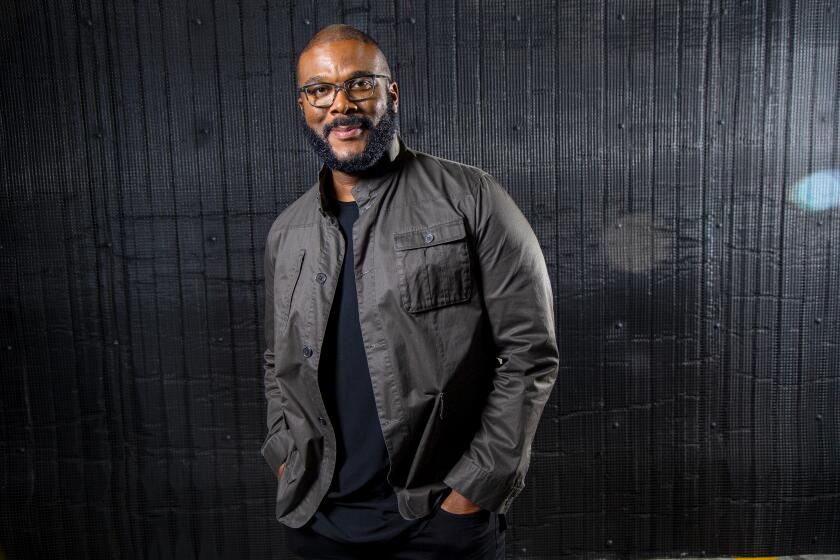Those moving-on movies
Few rites of passage are more fraught with collective angst than the kids leaving home. Parents stare at empty bedrooms and brood over noiseless dinners. Young people discover that freedom brings unwanted responsibilities and challenges they may not be ready to handle. Relationships change.
No blueprint sets forth how to break away or even when, since some children fly the nest at 18, some bolt in their 20s, and some never summon the gumption — or these days have the money or job — to go at all.
“Nobody is correctly equipped to manage what’s happening,” noted Los Angeles-based author and psychotherapist Stacy Kaiser.
It’s clearly something touching a collective nerve, especially among boomer-age parents whose children are flying the coop. So perhaps it’s not a surprise that three current films — “Toy Story 3,” “Cyrus” and “The Kids Are All Right” — delve into the leaving-home theme just in time for summer, the traditional period of school graduations and moving on to whatever is next.
All three have received excellent reviews and strong word-of-mouth, but the biggest hit is the blockbuster “Toy Story 3,” a veritable tear-jerker of a cartoon built around the emotional sting of Andy going off to college and leaving childhood things behind. One of the clever conceits of “Toy Story 3” is that for all intents and purposes, the toys suffer the heartache felt by parents and struggle to work through it.
Director Lee Unkrich, one of the creative visionaries behind the Disney- Pixar production, admitted to being surprised to learn that so many adults are wet-eyed in the theaters. “The common denominator is, they either cry at the film or they’re on the verge of crying,” Unkrich said by phone from Berlin, where he was on a global promotional tour.
The depth of reaction caused him to think long and hard about why the movie touched such a nerve, Unkrich said. The words “loss” and “separation” are inadequate to explain it, he said. The real power behind leaving home involves a symbolic end of childhood — the termination of a protected, wonder-filled part of life that’s about bedtime stories and baking cookies and family meals at home.
The two other films take decidedly different tacks on moving out. In “Cyrus,” a quirky, squirm-in-your-seat comedy by the filmmaking brothers Jay and Mark Duplass, the problem is a full-grown, semi-deranged 21-year-old played by Jonah Hill who can’t stand the thought of leaving home. He clings obsessively to his single mother ( Marisa Tomei), going so far as to coldly sabotage her only promising romantic relationship.
In “The Kids Are All Right,” which opened Friday in Los Angeles, the thrust of the comic drama is that lesbian mothers played by Annette Bening and Julianne Moore are forced to deal with their already-strained relationship after their two teenage children befriend the sperm donor ( Mark Ruffalo) who helped to get the mothers pregnant. The action unfolds against the backdrop of daughter Joni ( Mia Wasikowska) preparing, like Andy, to depart for college.
Despite the radical differences in their story lines, the films all touch a universally powerful chord — and at a time when it is especially resonant, according to Kaiser. Confusion about leaving home has never been greater, she said. There are “virtually limitless” ways to travel and have fun and experience adventure after escaping the parental shackles. Mix in a high level of youthful rebellion, and there is an “excitement and urgency to get out in the world and try things,” Kaiser said. “And then you have these kids who, because of the recession, can’t get out.”
Some are even moving back home, relying more than ever on their parents, despite the constricting rules of home. “I’m actually seeing a lot of it in my private practice — they’re leaving home too early or they’re not getting out,” said Kaiser, whose book “How to Be a Grown Up” is aimed at providing a basic instruction manual. “Both of those extremes have a high likelihood of failure. They don’t become successful adults.”
The end of childhood is something felt deeply by children as well. Unkrich recalled when he was 18 and newly enrolled at USC Film School. He had just rewatched the movie “E.T.: The Extra-Terrestrial,” which so poignantly concludes with E.T. leaving Earth.
“I remember walking around campus ... and starting to sob,” he said. “It caught me completely off guard. I felt a certainty that my childhood was over.”
Young people who see “Toy Story 3” are confronted with their own childhoods ending. Adults who respond to the film, Unkrich said, are also pining for the lost innocence of their youth.
“It’s a universal theme, very powerful and evocative,” said Richard Shadick, a psychology professor and director of the student counseling center at Pace University in New York. Shadick has seen variations in any number of popular books and films, including “ Cinderella,” “Finding Nemo” and the “ Harry Potter” movies.
The other side of the coin is shown in “Cyrus,” the art-house comedy in which the clingy young adult can’t quite bring himself to disengage from his enabling mother — even after she meets her new lover, played by John C. Reilly. Cyrus will resort to any tactic to keep Mom to himself, inflaming all sorts of complicated emotions.
The Duplass brothers, best known previously for “Baghead,” set out to produce a thorny love triangle, with one side being the son. The filmmakers expected viewers to relate to the Tomei and Reilly characters — the grown-ups. They were shocked, however, as they toured with the film after its January release at Sundance, at how many people admitted they were or had been the maladjusted Cyrus.
“They say, ‘Oh, my God, I was Cyrus for seven years, and I really blocked my mom and dad from happening,’” Jay Duplass said.
Stuart Blumberg, who co-wrote the screenplay of “The Kids Are All Right” with director Lisa Cholodenko, acknowledged that separation issues involving the 18-year-old character, Joni, were often secondary to other struggles of the family. Still, Joni’s imminent departure for college provides a frame for the action and becomes the backdrop for the movie’s climax, enabling filmmakers to contrast the overall values of a family with the individual will of its members.
“The Joni character is invested in doing right by her parents,” said Blumberg, who drew from his own experience leaving home for Yale in writing the closing scenes. “As she’s about to go to college, she starts claiming her own will. She stops thinking about what they want and thinking about what she wants.”
Though neither “Cyrus” nor “The Kids Are All Right” were intended to hit hard on themes of separation and the end of childhood, the emotional tug seemed too much to resist.
The Duplass brothers, especially, find the subject irresistible. Their next project, already filmed in New Orleans, is about a 30-ish dreamer whose life is stuck in neutral. Due for release early next year, the movie is called “Jeff Who Lives at Home.”
More to Read
Only good movies
Get the Indie Focus newsletter, Mark Olsen's weekly guide to the world of cinema.
You may occasionally receive promotional content from the Los Angeles Times.






